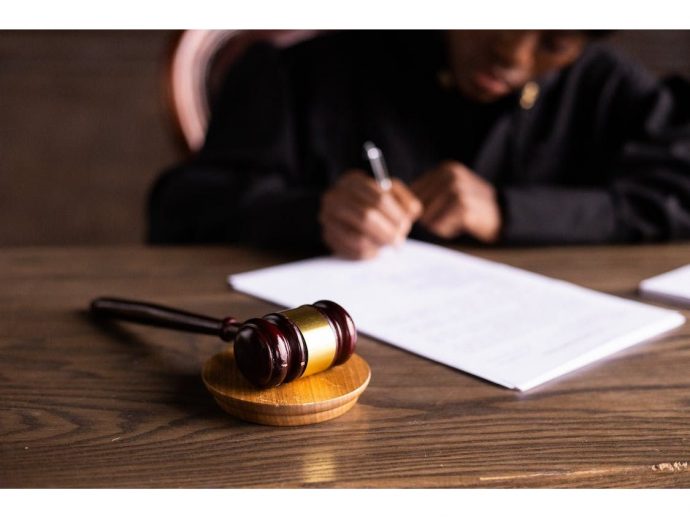Categories more
- Adventures (17)
- Arts / Collectables (15)
- Automotive (37)
- Aviation (11)
- Bath, Body, & Health (77)
- Children (6)
- Cigars / Spirits (32)
- Cuisine (16)
- Design/Architecture (22)
- Electronics (13)
- Entertainment (4)
- Event Planning (5)
- Fashion (46)
- Finance (9)
- Gifts / Misc (6)
- Home Decor (45)
- Jewelry (41)
- Pets (3)
- Philanthropy (1)
- Real Estate (16)
- Services (23)
- Sports / Golf (14)
- Vacation / Travel (60)
- Watches / Pens (15)
- Wines / Vines (24)
- Yachting / Boating (17)
Can You Remove a Criminal Conviction From Your Record?
Published
01/03/2024Having a criminal record can be devastating. Your criminal record can affect your ability to land your dream job and even throw your chosen career path off course. One stupid mistake can have far-reaching consequences, so it’s not surprising if you want to erase your criminal history.
However, there may be a pathway to expunging criminal convictions—but before you get too excited, some convictions are permanently on your record. If you’re curious about expunging your record, here’s what you should know.
What Is Expungement?
Expungement is the legal process of removing or lessening the severity of some criminal offenses on a record. California Penal Code 1203.4 PC states some convictions may be eligible for expungement after the individual has completed the requirements of their sentence, which can be either jail time, probation, or both.
You should know that you can’t make your criminal record completely disappear. Your criminal record will still be visible to the public. However, having a crime expunged will make change your record from having a conviction to ‘case dismissed’.
In other words, individuals pulling up your record will still be able to see that you were charged with a crime. The primary difference is your record now indicates you weren’t convicted.
This simple difference can have a profound effect on your life. Now careers like becoming a real estate agent are possible. In California, you can’t get a real estate license if you’ve been convicted of a crime.
There Are Limitations
Having a criminal conviction expunged can help you advance your career. If you’re in the country on a Visa, you may also be able to avoid deportation. However, Penal Code 29800 PC still applies. This statute prevents you from purchasing and/or owning a firearm; this is a privilege you can’t get back simply by erasing a criminal conviction.
Your conviction may also prevent you from running for public office, and another example is a sexual offense. If you’re ordered by the court to register as a sex offender, this still applies. The crime may be changed to charges dismissed but you still need to complete the registry process.
California is a three-strike state, which means the third time you’re convicted of a felony, you risk an automatic life sentence. Having a previous conviction expunged doesn’t mean you’re back to one or two strikes—the original conviction still stands.
In some rare cases, you can get around these limitations, but don’t hold your breath. One option is to ask for a Governor’s pardon. These are rare and only a few are issued during a Governor’s tenure. The other option is hiring a criminal defense attorney to have your felony conviction dropped down to a misdemeanor; this option is a little easier than petitioning the governor.
How to Expunge a Criminal Conviction
Okay, so you’re going forward and trying to expunge a conviction from your criminal record. A good place to start is by becoming familiar with your case, which is also when it helps to work with a criminal defense attorney. They understand the complexities of your case and the California legal system.
- Request Your Criminal Records
You can request copies of your criminal records, however, be prepared to wait a few weeks. You’ll contact the court you were convicted in and pay a nominal fee, and if you provide proof of low income, the fee may even be waived.
Your attorney will also let you know if you’re eligible for expungement since not all convictions meet the requirements. For example, you can’t expunge convictions in federal court.
- Obtain the Necessary Forms
You’ll need to request a petition for dismissal forms. You can get these at your local courthouse. Make sure you’ve completed all of your sentencing requirements, which includes finishing up probation and paying all relevant fees and fines.
If you’re trying to expunge more than one conviction, you’ll need multiple forms since you can only list one conviction per form. Go ahead and get together character references and documentation relating to completing your sentence.
If you have community support, encourage them to write letters of recommendation. Attach these documents to the petition for dismissal form.
- File the Petition and Wait for Your Court Date
After filing the petition with the court, it’s time to wait, and you’re waiting for a court date to plead your case for expungement. Now is a good time to review your case with your attorney.
You don’t want to make any mistakes during your expungement hearing. If all goes well, the court will order your record changed from conviction to case dismissed.
Talk to An Attorney About Your Expungement Case
Cleaning up your criminal record is indeed possible, and the assistance of a knowledgeable attorney can be invaluable in this process. A skilled defense attorney can not only guide you through the intricate steps of the expungement process but also significantly enhance your chances of a successful outcome.
Moreover, their expertise ensures that all legal avenues are explored and leveraged to effectively clear your record, allowing you to move forward with greater confidence and a clean slate.















